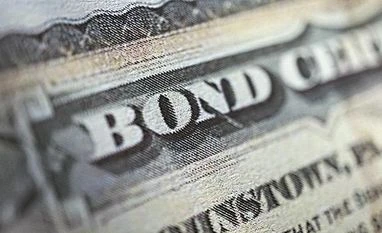The price for premature redemption of sovereign gold bond (SGB) due on Tuesday has been fixed at Rs 5,115 per unit, an RBI release said.
Premature redemption of Gold Bond is permitted after the fifth year from the date of issue and the due date of SGB 2016-17, Series III issued on November 17, 2016 is May 17, 2022.
The redemption price of SGB is based on the average closing price of gold of 999 purity of the week (Monday-Friday) preceding the date of redemption as published by the India Bullion and Jewellers Association Ltd (IBJA).
"Accordingly, the redemption price for the second premature redemption due on May 17, 2022 shall be Rs 5,115 per unit of SGB based on the simple average of closing price of gold for the week May 09-13, 2022," the RBI said in a statement.
The issue price of the Sovereign Gold Bond Scheme 2016-17, Series III was Rs 2,957 per gram of gold. The nominal value of the bond was fixed on the basis of average closing price for gold of 999 purity (October 17-21, 2016) published by the IBJA at Rs 3,007 per gram. The government, in consultation with the RBI, had offered a discount of Rs 50 per gram on the nominal value of the sovereign gold bond.
The RBI issues the bonds on behalf of the Government of India which are sold through banks, Stock Holding Corporation of India Limited (SHCIL), designated post offices, and NSE and BSE.
As regards taxation, Deepak Jain, Chief Executive, TaxManager.in, a tax efiling and compliance management portal, said the interest earned from SGB will be taxable as income from other sources while TDS is not applicable on the bond.
More From This Section
He said the rules on the taxation of capital gains on redemption of SGB are very clear that after the maturity of 8 years lock-in period the entire gains are exempted or tax free.
However, if the SGB is redeemed after the lock-in period of 5 years and before the maturity period of 8 years, the gains accumulated on the redemption will be long term capital gains and it will be taxed at 20 per cent with indexation benefit, Jain said.
If the indexation benefit is not opted then 10 per cent tax rate will apply, he said.
Col Sanjeev Govila (Retd.), who runs a Sebi-registered financial advisory firm, Hum Fauji Initiative, opined that SGBs are primarily bought for buying gold as a long-term asset allocation strategy which, apart from the capital appreciation, also gives a 2.5 per cent annual interest.
According to him, SGB 2016-17 Series III bonds have given "very good returns" of about 13.5 per cent annualised including the interest earned.
"With the current uncertainty on inflation stickiness and GDP growth outlooks, it would be good to hold on to these SGBs," he added.
The scheme was launched in November 2015 with an objective to reduce the demand for physical gold and shift a part of the domestic savings -- used for the purchase of the yellow metal -- into financial savings.
The bonds are denominated in multiples of gram (s) of gold with a basic unit of 1 gram. The tenor of the bond is 8 years with an exit option after the 5th year to be exercised on the next interest payment dates.
The minimum permissible investment is 1 gram of gold. The maximum limit of subscription is 4 kg for individuals and HUFs and 20 kg for trusts and similar entities per financial year. The know-your-customer (KYC) norms are the same as that for the purchase of physical gold.
)